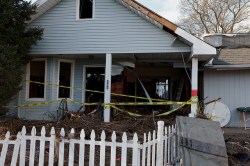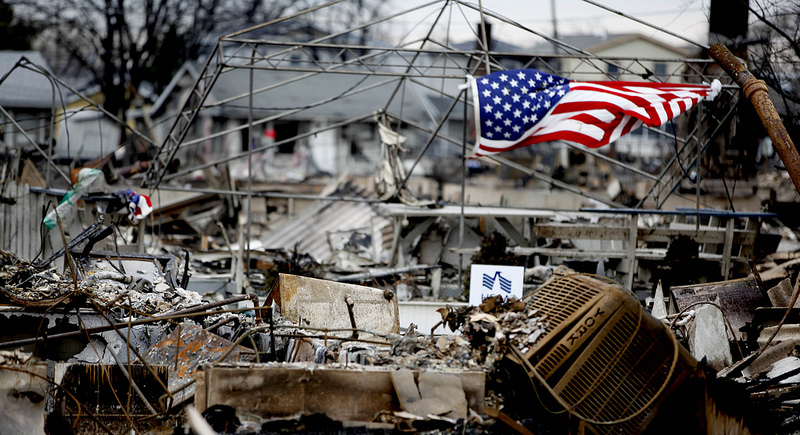Coming up on the six-month anniversary of Superstorm Sandy, New York City is ready to move on. But more than 2,000 Sandy refugees still living in the city’s hotels are not — since they’re, you know, homeless.

John de GuzmanThis is no longer a housing option — and soon a hotel might not be either.
According to the city’s Department of Homeless Services, upwards of 900 displaced families are living in more than 45 different hotels throughout the five boroughs. Since last October, more than 3,000 storm-swept families have spent one or more nights in a hotel through a city program, which is slated to end on April 30. A separate FEMA program does not yet have an end date.
“We’re trying to get people focused on the future,” Homeless Services commissioner Seth Diamond told The Wall Street Journal. That would be a future in which they might not have anywhere to live, apparently. Diamond said the city would be placing some people in public housing units, while others might receive federal Section 8 vouchers. Everyone else would apparently be on their own, with some potentially having to leave the city altogether.
Some housing experts and elected officials said the city’s reliance on hotels underscored how federal and local disaster planning had to be revised to include more emergency rental assistance.
“Why are we spending money on hotels instead of helping families pay the rent?” asked Rosanne Haggerty, president of Community Solutions, a nonprofit organization in New York that works to end homelessness. She added, “For a fraction of the cost, families could be in a stable situation and getting a running start in putting their lives together.”
The damage from Hurricane Sandy revealed how many residents of coastal areas in New York, especially in Brooklyn and Queens, were renters with low incomes.
Of more than half a million households across New York and New Jersey that registered for assistance from FEMA by February, 43 percent made less than $30,000 a year, according to studies by Enterprise Community Partners and the Furman Center for Real Estate and Urban Policy at New York University.
Some of those who have still not found permanent housing had been living in illegal basement apartments and in other living arrangements without leases or other documents needed for apartment hunting or immediate federal rental assistance. A small group, about 2 percent, are illegal immigrants and another small group has not cooperated in efforts to place them. …
But mostly, they are poor.
FEMA is spending an average of $252 per night per family for the hotel rooms — which is still a far cry from the kind of scratch you’d need to buy those beachfront homes in the bargain-flooded, basement-priced Rockaways.




